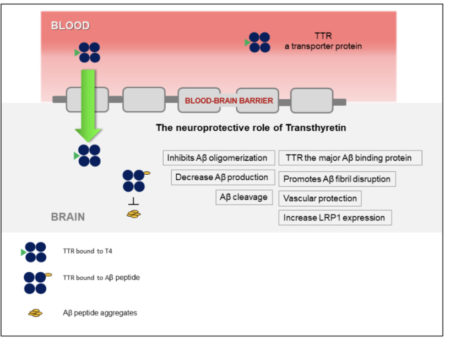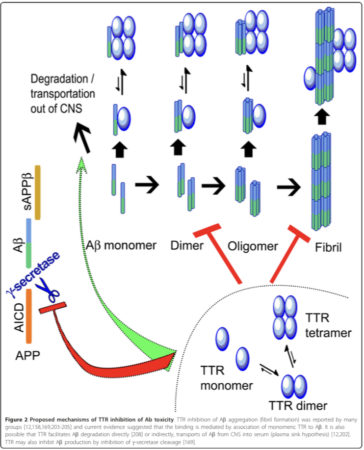If you think you might have mild cognitive impairment (MCI) Part 3: Transthyretin
Transthyretin (TTR)
functions as an anti-acute phase response protein in the blood,
and is also called prealbumin
because blood levels decrease due to inflammation, pregnancy, tumors, and malnutrition.
The nutrition support team (NST) has become one of the important proteins
used as an indicator for shortening the length of hospital stay.
It also acts as a carrier of vitamin A
through thyroxine (T4) and retinol binding protein (RBP), and
is called transthyretin because of its function.

It is known that
the concentration of transthyretin in the cerebrospinal fluid gradually increases with aging,
but it is significantly decreased in patients with Alzheimer’s disease compared to normal controls.
There is a report that shows a negative correlation
between transthyretin concentration
and the degree of senile plaques in the brains of Alzheimer’s disease patients,
and a report that transthyretin suppresses aggregation of Aβ fibrils
in Alzheimer’s disease model mice.

In addition,
continuous administration of omega-3 fatty acids to mice with memory impairment
induced the expression of transthyretin mainly in the hippocampus and
improved memory impairment.
It has been clarified one after another that transthyretin has a protective effect on neuronal tissue.

